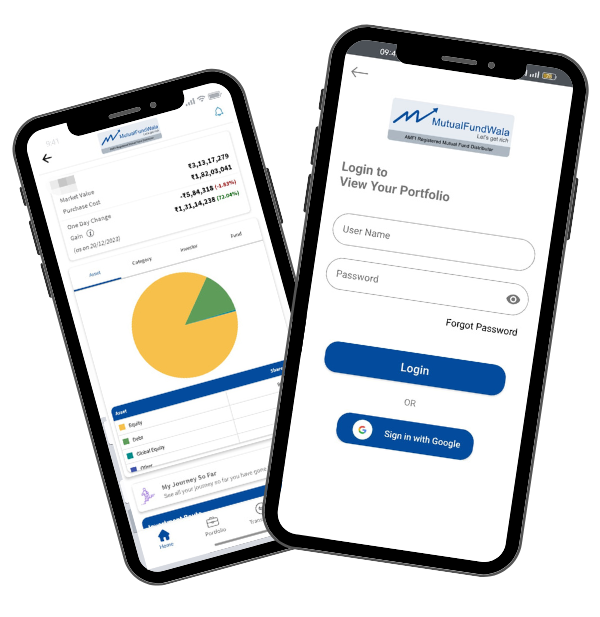MutualFundWala will facilitate Non-Resident Indians (NRIs) to invest in mutual funds. Investing in mf in India allows NRIs to participate in the country’s growth story and diversify their investment portfolio.
NRIs must be well-informed about the regulations, tax implications, and investment options available to make informed decisions aligned with their financial goals.
We at MutualFundWala have a desk dedicated to overseas investors. We can help you in the documentation and investment process with ease and time of your choosing.
Eligibility and Documentation
- NRIs, as well as Persons of Indian Origin (PIOs) and/or Overseas Citizens of India (OCIs), are eligible to invest in mutual funds in India.
- Required documents include a valid passport, Overseas Citizen of India (OCI) card, Person of Indian Origin (PIO) card, Permanent Account Number (PAN), and completion of KYC (Know Your Customer) formalities.
MutualFundWala will assist the investors in KYC compliance and any other assistance that may be required.
Choose Investment Type
- Investors can choose from various types of mutual funds based on their risk tolerance, investment goals, and time horizon. These include equity funds, debt funds, balanced funds, index funds, and more.
- NRIs based in the USA and Canada need to be careful as the rules for them to invest in Mutual Funds in India differ.
Open an NRE or NRO Account
NRIs must have a Non-Resident External (NRE) or Non-Resident Ordinary (NRO) bank account. An NRE account is for repatriable income, while an NRO account is for non-repatriable payments.
MutualFundWala has tie-ups with several banks to enable investors in NRI bank account opening and related documentation.
Complete KYC Process
NRIs must complete the KYC process, which involves providing the following documents
- Pan Copy
- Aadhar copy/ any other address proof
- Passport copy
- Tax identification number (overseas|)
- Overseas address proof.
Select schemes to invest in mutual funds
Once a bank account is in place and other formalities are completed, investors can choose the schemes to invest in.
MutualFundWala will provide all the information related to various projects, expense ratios, past performance, etc.
Tax Implications
NRIs need to know Mutual Funds in India are taxable products. Capital gains tax and Tax Deducted at Source (TDS) are applicable. Rates may vary based on the type of mutual fund (Equity or Debt classification) and the investment duration.
Redemption and Repatriation
NRIs can redeem their mutual fund units at any time. However, there might be exit loads for early redemption in some schemes.
Repatriation of the investment proceeds, especially from an NRE account, is generally allowed without restrictions. NRO accounts do not permit foreign currency repatriation.
Nomination
It is prudent and mandatory to have a nominee in your MF investments.
NRIs should stay updated on changes in regulations, tax laws, and market conditions that might impact their mutual fund investments.
MutualFundWala understands the nuances of NRI investing in mutual funds.
Conclusion
Navigating mutual fund investments in India can be a valuable opportunity for NRIs looking to diversify their portfolios and benefit from the Indian market’s growth.
At Mutualfundwala, we offer specialized solution and resources tailored to NRIs, ensuring a smooth and compliant investment experience. If you need help with starting your investment journey or have questions about the process, our team is here to support you every step of the way. Contact Mutualfundwala today to get expert informed decisions about investing in Indian mutual funds!











